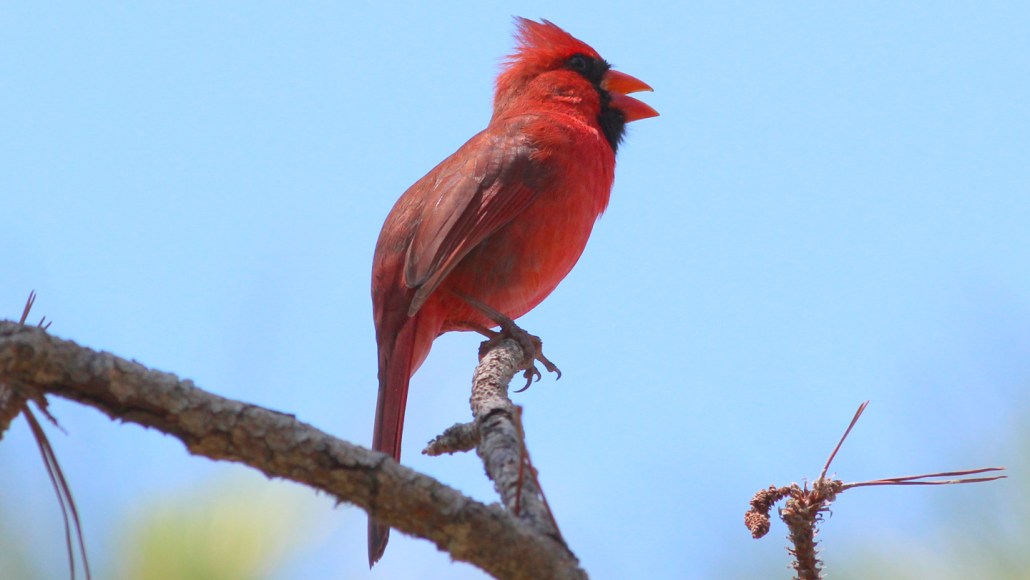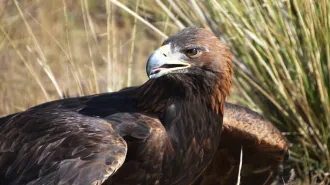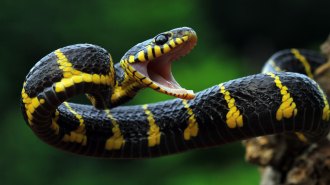
In places with a lot of artificial light, birds like this cardinal sing an extra 50 minutes on average — 18 minutes more in the morning and 32 minutes more in the evening — compared with birds in areas with less light pollution.
Ser Amantio di Nicolao/Wikimedia Commons







